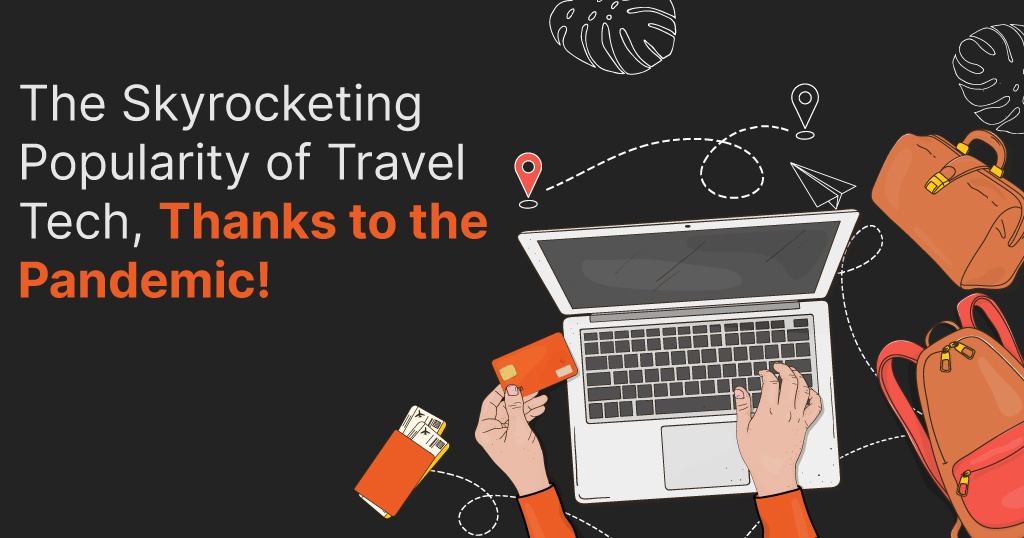
In 2019, an ET headline read, ‘Indian companies slow to adopt tech to manage business travel.’ At first glance, this seemed strange, given that many ET reports said India was among the top ten growing business travel markets.
India has been making the cut for its vast business travel market and the scope it promises for almost a decade now. Business travel created a niche with different professions, hotels, and airlines— all dedicated specifically to business travel. Year after year, showed a significant portion of airline and hotel bookings have been for business travellers.
What Hampered the Adoption of Travel Tech in India?
Many industry watchers believed India’s travel and transportation needs were unique, and thus new technology would not be able to address these quirks. For instance, how could Google Maps succeed when a building’s color defined many streets, but they had no official naming?
The country’s travel and transportation work in ways many believed sophisticated technologies couldn’t capture. In many ways, pedestrians relied on fellow travellers to understand how India’s roads and network systems worked. Yet, slowly things started changing.
The Adoption of Technology Beyond Travel
While things were changing on the consumer side, many believed that technology could not contribute to business travel as well as it did to leisure/local travel. Unlike consumer travel, business travel management has more nuances like booking processes, getting the best deals, etc. which many believed can be best handled by experienced agents and travel management companies. This is why until as recently as 2019, companies used to rely heavily on the human touch. Many also believed that business travel use cases could not be automated. How could a software ensure that employees booked the most cost-effective option their policy allows?
The Inevitable Generational Gap
The business travel sector made headlines in yet another interesting report, ‘Indian business travellers most likely to splurge.’
Such an assumption begs the question of why or how could one reach this conclusion. If Indians are ‘splurging’ on business travel, what does it mean for the businesses that are sponsoring it?
As the new-age, tech-savvy professionals took hold of the reins, a wave of people who like to call on cellphones instead of ringing the doorbell to announce their arrival emerged. Soon, they started booking business trips on consumer websites. Tech was being adopted, but saddling companies with excess costs, and no way of tracking them was found relatively easy to navigate online, even if it did pose some challenges than talking to a professional. Soon people resorted to booking business trips on their own through consumer websites that offered comparative prices. Tech was being adopted but at the cost of too many expenses and no way of tracking data.
Then there were None
The pandemic was a business travel apocalypse, so to speak. Business trips vanished overnight, and professionals were forced to meet online.
What earlier used to be firm handshakes with people in a meeting room turned into high-fives over zoom calls. A cultural shift occurred across the globe where people believed in touchless gestures and tech that allowed them to do so.
Rapid-fire adoption of digital technologies led to a devastating impact – travel agents shut shop, and travel teams were drastically reduced in size. A popular belief was that business travel was dead. But, this belief was misplaced. By the end of 2020 with the majority of the population vaccinated and travel restrictions being lifted, many travel-heavy industries resumed business travel. By mid-2021, the business travel market was already projecting pre-pandemic levels of travel volume in the near future.
Having budgets decline by 90%, put a false sense of security or control in the management. It became evident that fewer trips do not necessarily mean lesser costs. Eventually, when travel resumed, the already profit-hit businesses would have to be even more careful in navigating certain macro factors like airfares and hotel costs.
The Rise of automation in travel and the way ahead
Just as business travel vanished overnight, it made a rapid recovery too. The necessity to cope with the escalating workload, and partly encouraged by the adoption of technology in other processes, travel managers started looking at technology in business travel. Many automated products have found a way to meet companies halfway.
The modern automated tools allowed travel managers to empower travelers to book on their own, and still retain control over how bookings are made. They could now set up their approval flows, set budget limits, and still book instantaneously. Today every 2nd company is actively considering deploying travel tech. This change is gaining momentum with rising demand for person-to-person connect, offsites, and advancing tech savviness.
The biggest reason for such urgency in adopting tech is because of the uncertainty of the circumstances. Businesses are finding ways to make human contact resourceful, and in a way that is better and quicker. Cutting manual workflows and saving costs is only the first step for so many. As the tech advances, we are going to be introduced to more nuances that facilitate business travel in unexpected ways.
So, where does your company fit in the picture today?
ITILITE is an advanced corporate travel management software that offers personalized bookings, itinerary modifications, and affordable booking packages to help you plan for your next offsite meeting with ease. With ITILITE, you can also take advantage of 24/7 travel support and real-time alerts to keep employees safe while they’re on the road.
To check out these features, book a demo now.













